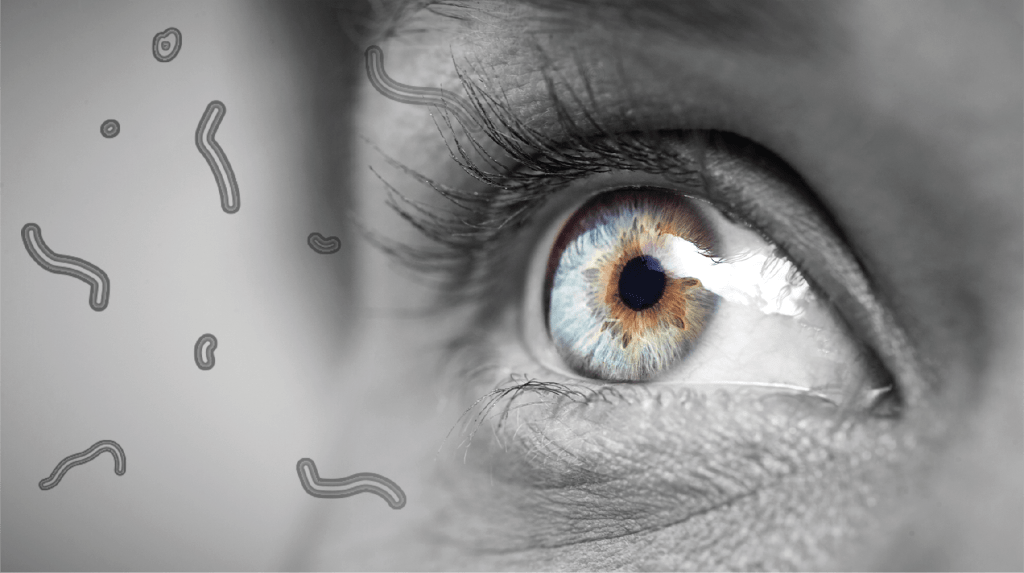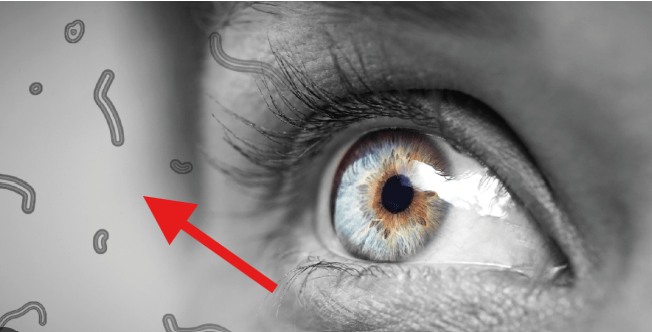Eye floaters are little spots or specks that appear in your field of vision, particularly while staring at anything bright, such as white paper or a blue sky. While they can be bothersome, they rarely interfere with your vision. In rare situations, a huge floater might create a little shadow on your vision, but only under certain lighting conditions.

A doctor has explained what you should do if you start seeing eye floaters! Keep reading to learn more…Most floaters are microscopic specks of collagen, a protein found in the gel-like vitreous at the back of the eye. As you age, the protein fibers weaken and cluster together, creating shadows on the retina. Seeing flashes could signal that the vitreous is pushing away from the retina. If your floaters are new, have altered abruptly, or you notice flashes, seek medical assistance right away.
Floaters often appear between the ages of 50 and 75. Nearsightedness and cataract surgery are two factors that increase the chance. In rare cases, floaters can be caused by: Eye illness. Eye injury. Diabetic retinopathy Crystal-like deposits in the vitreous; eye cancers. Serious conditions related to floaters include: Detached retina
Torn retina. vitreous hemorrhage, Inflammation of the vitreous or retina due to infection or autoimmune disorders.
Eye Tumors. Sudden Floaters. Sudden eye floaters may signify a dangerous problem, such as posterior vitreous detachment. If you experience sudden or persistent floaters, visit a doctor right once. Viewing an eclipse or staring at the sun without protective eyewear can result in temporary floaters due to solar retinopathy. Symptoms include eye soreness, pain, light sensitivity, visual abnormalities, headaches, and watery eyes.

.jpg)
Mild solar retinopathy normally improves with time, but an accurate diagnosis is required. Anxiety, Stress and Floaters. Anxiety and stress do not produce floaters, but they can increase your awareness of them. Floaters may potentially heighten feelings of worry or despair, but more research is needed on this topic, according to WebMD. Natural Treatments for Eye Floaters
If your floaters are mild, you may not need treatment and can learn to live with them. According to an eye expert, the following are some natural approaches for managing floaters: Shift your gaze to shift the floaters out of your field of view. Diet: A well-balanced diet high in vitamin A (carrots, leafy greens, liver, fish, and dairy products) promotes eye health.
Supplements: Consult your doctor before using vitamin A, omega-3 fatty acid, or zinc supplements. Eye Exercises: Increase blood circulation in your eyes by rotating them in circles or focusing on faraway objects. Quit smoking: Smoking affects blood circulation, potentially worsening floaters. Seek help with quitting.
Manage eye strain: Reduce screen time and take breaks to prevent eye strain. Filter the bright lights: Use sunglasses outdoors and opt for low indoor lighting to reduce floater visibility.


